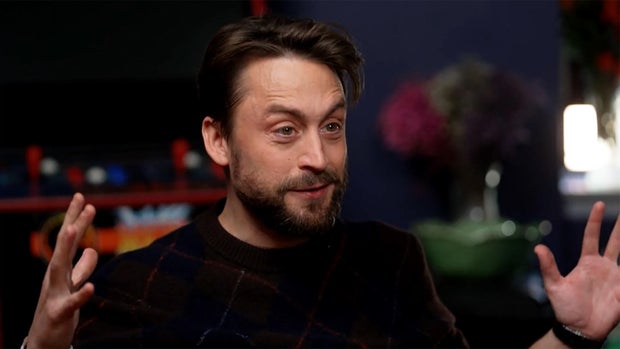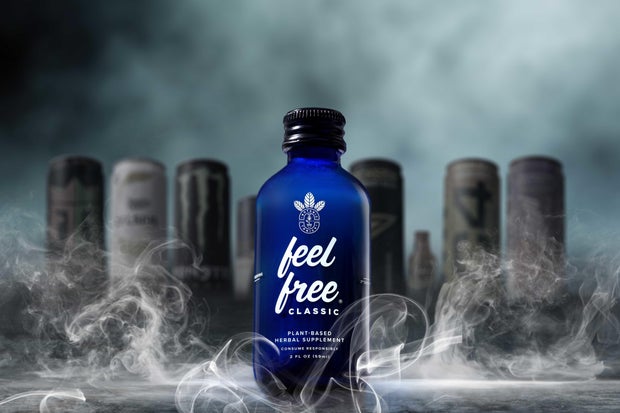CBS News
This week on “Sunday Morning” (November 3)

The Emmy Award-winning “CBS News Sunday Morning” is broadcast on CBS Sundays beginning at 9:00 a.m. ET. “Sunday Morning” also streams on the CBS News app beginning at 11:00 a.m. ET. (Download it here.)
Hosted by Jane Pauley
COVER STORY: The evolving “Wild West” of political advertising
Since the Supreme Court’s Citizens United decision and the rise in social media, the ways in which politicians and campaign issues are advertised has exploded, with front groups and hidden funders reaching potential voters on their phones, targeted directly to somebody’s likes and dislikes. Correspondent David Pogue talks with media experts about why negative ads often win out over positive ones, even as people are down on negativity. He also talks with an independent voter in a battleground state – one of the most desirable targets of this election cycle.
For more info:
ALMANAC: November 3
“Sunday Morning” looks back at historical events on this date.
POLITICS: Stagecraft and the power of political photographs
With the invention of photography came a new way to view, mythologize and remember the nation’s presidents. CBS News chief election & campaign correspondent Robert Costa talks with Washington Post critic Philip Kennicott about how photographs capture the power of the presidency, the combativeness of campaigns, and the heavy burdens of the highest office.
For more info:
WORLD: The crisis in Venezuela
Venezuela’s authoritarian president Nicolás Maduro claimed victory in the country’s July election despite evidence he lost in a landslide. In the ensuing chaos, two dozen people have been killed and 2,000 detained. A quarter of Venezuela’s population had already fled the country’s economic devastation and political repression, and the election has only made matters worse. Correspondent Martha Teichner looks at how the oil-rich country fell into crisis, and talks with opposition leader-in-hiding María Corina Machado; and journalist William Neuman, author of “Things Are Never So Bad That They Can’t Get Worse: Inside the Collapse of Venezuela.”
CBS News
TV: “Yellowstone” cast members attend cowboy boot camp
Taylor Sheridan, the creative force behind the Paramount series “Yellowstone,” demands authenticity from his actors, who attend a “cowboy boot camp,” at Sheridan’s ranch outside Dallas, to learn how to properly ride a horse or rope cattle. Correspondent Lee Cowan talks with Cole Hauser, Luke Grimes, Jennifer Landon, Ethan Lee, and cowboy-turned-actor Jake Ream about gaining a better understanding of the joy and poetry to be found between horse and human.
For more info:
PASSAGE: In memoriam
“Sunday Morning” remembers some of the notable figures who left us this week.
CBS News
POLITICS: What Colonial Williamsburg may teach us about politics today
The living history museum of Colonial Williamsburg, in Williamsburg, Virginia, offers an enlightening portrait of life in Revolutionary-era America, while providing a vivid contrast to today’s political and social conflicts. “Sunday Morning” senior contributor Ted Koppel goes in search of lessons from Thomas Jefferson, George and Martha Washington, and James Lafayette (an enslaved man who spied on the British for the Continental Army), to discover what the future may learn from the past.
For more info:
COMMENTARY: Taking a kinder, gentler tone against the rudeness of politics
Civility has been absent from much of this presidential campaign. And at times, it can seem like the rudeness of our politics has infected our personal interactions as well. CBS News chief medical correspondent Dr. Jonathan LaPook suggests a path away from meanness.
CBS News
MOVIES: The captivating charm of Kieran Culkin
He was a former child actor who graduated to an Emmy-winning performance as Roman Roy, the filterless, fast-talking middle child scheming to inherit a media empire, in “Succession.” Now, the charm of Kieran Culkin is front-and-center, playing a rudderless man-child in the poignant comedy “A Real Pain.” He talks with correspondent Mo Rocca about growing into his career; what he learned about fame from the celebrity of his brother, actor Macaulay Culkin; and the surprising thing he dislikes about being a dad.
To watch a trailer for “A Real Pain,” click on the video player below:
For more info:
COMMENTARY: At stake on Election Day: The reality of the presidency
Each president faces tremendous challenges upon taking the oath of office. CBS News’ John Dickerson says, in addition to the knowns and unknowns of leading our country in an uncertain world, the contest between Vice President Kamala Harris and former President Donald Trump presents them each with a unique test before Inauguration Day: how they manage victory, or defeat.
HUMOR: Campaign 2024, just for laughs
It’s almost over! “Sunday Morning” Jane Pauley looks back at how TV’s comics and late-night hosts have viewed the 2024 presidential election.
NATURE: TBD
WEB EXCLUSIVES:
FROM THE ARCHIVES: Teri Garr on living with MS (Video)
Oscar-nominated actress Teri Garr, best known for her comic turns in “Young Frankenstein” and “Tootsie,” died on Tuesday, October 29, 2024, at age 79. In this “Sunday Morning” profile originally broadcast on December 4, 2005, Garr talked with correspondent Rita Braver about her autobiography, “Speedbumps”; how she advanced from dancing in the background of Elvis Presley movies to starring roles (she was, admittedly, up-front about lying on her resume); and how it became harder for her to find acting jobs following a diagnosis of multiple sclerosis.
FROM THE ARCHIVES: Our love of tearjerkers (YouTube Video)
Call them tearjerkers, call them weepies, call them “women’s pictures”: Movies with highly emotional stories aren’t, sadly, Hollywood’s go-to genre these days. In this “Sunday Morning” story that originally aired February 27, 2011, correspondent Mo Rocca talked with producer Lynda Obst (“Sleepless in Seattle,” “The Fisher King”) about what studio executives are likely to greenlight at a time when action films and superhero movies rule the box office. Rocca also talks with actor James Caan, who starred in one of the weepiest of tearjerkers, “Brian’s Song”; and with critic Leonard Maltin, who describes the value of having “a good cry” at the movies.
FROM THE ARCHIVES: Are ghosts real? (YouTube Video)
A 2011 CBS poll showed that forty percent of Americans believe in ghosts or spirits, and half of those claim to have experienced a paranormal encounter. Correspondent Tracy Smith talks with Jeff Belanger, author of “The World’s Most Haunted Places,” at the site of a notorious murder. She also meets paranormal investigator Joe Nickel, who says the notion of ghosts is “scientific nonsense”; and joins a “ghost tour” at the Waverly Hills Sanatorium in Louisville, Kentucky, a structure purported to be haunted. Originally broadcast October 30, 2011.
FROM THE ARCHIVES: Why scary movies thrill us (YouTube Video)
From 2018: Lee Cowan talks with actress Jamie Lee Curtis, who returned to the horror genre in a new entry in the “Halloween” franchise, to once again face off against the masked Michael Myers, and she admits she doesn’t like scary movies! Cowan also talks with Vulture film critic Jordan Crucchiola about the popularity of horror films; sociologist Margee Kerr, who studies what happens to our brains when we experience fear in the theatre; and with Jason Blum, whose Blumhouse Productions was behind such horror hits as the Oscar-winning “Get Out.”
FROM THE ARCHIVES: The immortal “Frankenstein” turns 200 (YouTube Video)
From 2018: Two centuries ago, at a storm-tossed villa in Switzerland rented by Lord Byron, a young girl named Mary Shelley accepted a challenge to write a ghost story, and created what would become one of the most famous names in horror: Frankenstein. Roxana Saberi looks at the creation of Shelley’s mythic tale, published in 1818, and what her story of a scientist who harnesses life itself has to teach audiences today.
FROM THE ARCHIVES: Horror movie master John Carpenter (YouTube Video)
From 2017: The filmmaker who is king of things that go bump in the night is a musical master of horror as well. Lee Cowan talks with director-composer John Carpenter, whose next film is a “real” sequel to his classic 1978 horror film “Halloween,” with returning star Jamie Lee Curtis.
GALLERY: Notable Deaths in 2024
A look back at the esteemed personalities who’ve left us this year, who’d touched us with their innovation, creativity and humanity.
The Emmy Award-winning “CBS News Sunday Morning” is broadcast on CBS Sundays beginning at 9:00 a.m. ET. Executive producer is Rand Morrison.
DVR Alert! Find out when “Sunday Morning” airs in your city
“Sunday Morning” also streams on the CBS News app beginning at 11:00 a.m. ET. (Download it here.)
Full episodes of “Sunday Morning” are now available to watch on demand on CBSNews.com, CBS.com and Paramount+, including via Apple TV, Android TV, Roku, Chromecast, Amazon FireTV/FireTV stick and Xbox.
Follow us on Twitter; Facebook; Instagram; YouTube; TikTok; and at cbssundaymorning.com.
You can also download the free “Sunday Morning” audio podcast at iTunes and at Play.it. Now you’ll never miss the trumpet!
CBS News
He thought his heart was in perfect health. An advanced scan showed something alarming.

When Chris Abrunzo was in his early 20s, his father was struck by the kind of heart attack known as a “widow maker.” The severe cardiac events are often fatal, and while Abrunzo’s father survived, it inspired him to take his heart health seriously, since family history is one of the strongest indicators for developing heart disease later in life.
Abrunzo started getting regular cardiac checkups and he made sure to work out frequently and eat well. As the years passed, tests continued to show he was in great health except for some elevated cholesterol that he treated with medication. He had no symptoms of heart disease. In 2023, a family friend told him about a newer, more detailed test that offered a view of the arteries without any invasive procedures.
“I go in thinking I’m going to get a scan and be told ‘You’re doing a great job,'” Abrunzo recalled. “Well, I get scanned, and the scan reveals that I had areas of plaque buildup, many of which would not show up on an echocardiogram or a stress test, but that showed up on this scan. One of those areas was around 70% blocked.”
High blockage in arteries can cause heart attacks. While the blockage Abrunzo found wasn’t in a crucial artery, it was in a place that would be difficult to treat with surgery, so he knew he had to focus on reducing the buildup. He was prescribed more medications, and further adjusted his diet and exercise regimens. During a checkup last month, Abrunzo was told that the blockage was only occluding about 40% of his artery, putting him at far lower risk for a sudden cardiac event.
Chris Abrunzo
“I think this just the ability to look inside there is just something that’s miraculous and probably saved my life, not in the very near future, but probably in my mid-50s,” said Abrunzo, now 47. “It’s like magic.”
What is cardiac CT angiography?
A cardiac CT angiogram is a test that essentially conducts “a CAT scan for the heart,” said Dr. Aeshita Dwivedi, a cardiologist at Northwell Health. The full-body scanner captures 3D images of the heart and the arteries that supply blood to the organ. Some scanners can take the image in less time than it takes a heart to beat. Doctors can study that 3D image for blockages, plaque buildup, and other warning signs for cardiac disease, Dwivedi said.
It’s far more advanced than what more common noninvasive tests, like the echocardiograms and stress tests Abrunzo was doing, can do.
“Usually you have to have greater than a 70% blockage in the arteries to have an abnormality on a stress test,” said interventional cardiologist Dr. Tony DeFrance. “And that’s really kind of a problem, because a lot of times people have echocardiograms, calcium tests, stress tests, and they say ‘Oh, you’re fine, your heart’s strong.’ That probably means they don’t have a 70% blockage. But we’ve found out over the last couple of decades it’s not the 70% blockages that cause the heart attacks. It’s often the 20% and 30% blockages.”
Clear Heart and Lung Imaging
The test can also look at the plaque, or buildup of cholesterol, fat, blood cells and more that can narrow or block arteries. Vulnerable plaque, when found, is often a warning sign for a sudden cardiac event. More than half a million Americans die from such events each year, DeFrance said.
“Vulnerable plaques … are the ones that when they tear or rupture, those cause heart attacks,” DeFrance said. Stable, or calcified, plaque is less harmful, though it may cause chest pain and narrow the heart’s arteries.
Expanding access to cardiac CT angiograms
Cardiac CT angiograms were first used in the early 2000s, said DeFrance, and the past decade has seen an increase in their use. He himself has founded the Society of Cardiovascular CT and trained thousands of physicians on the technology. In 2022, the American College of Cardiology issued guidelines recommending cardiac CT angiography as an evaluation tool for patients complaining of chest pain.
For Kim and Matt Mischo, expanding access to cardiac CT angiograms is personal. Matt Mischo believed he was in perfect health, but Kim, who worked in health care administration, convinced him to get a cardiac CT angiogram after she tested the technology herself during a work trip. She was worried about his family’s history of heart disease, even as he insisted he was in good health and had never had any worrying cardiac exams before. Finally, the active husband and father of four underwent the test — and found that he was on the verge of a massive heart attack, with large blockages in multiple key arteries.
Clear Heart and Lung Imaging
“I thought I was always invincible,” Matt Mischo told CBS News. The news made him scramble to book an appointment with a cardiologist, and he was warned he might need open heart surgery and as many as three stents to avoid a major heart attack. Luckily, he was able to remove the plaque with an atherectomy, a minimally invasive procedure where plaque is removed with a catheter. The experience inspired the couple to open their own imaging center.
Since June, the Clear Heart and Lung Imaging Center has seen more than 300 patients. Kim Mischo estimated that of those hundreds, about 40% have found they had “some level of coronary artery disease.” DeFrance works at the center, helping review the images taken and developing treatment plans for patients.
“The number one killer now, worldwide, is cardiovascular disease,” DeFrance said. “Our current workup doesn’t catch most people … Our current paradigm is missing a lot. Working towards prevention, identifying the disease early so we have many more options, is crucial.”
CBS News
This kratom drink was marketed as an alcohol alternative to be sold over the counter. Some consumers say it led to addiction.

When Jasmine Adeoye, an account manager based in Austin, Texas, decided to stop drinking in June 2022, she turned to a kratom beverage advertised as an alcohol alternative. Within a year and a half, Adeoye said she was addicted to the drink, “Feel Free Classic,” lured by what she calls the company’s deceptive marketing tactics.
The 29-year-old account manager based in Austin, Texas, said her favorite podcasters promoted the drink, which the company Botanic Tonics manufactures and sells, as “a miracle” beverage that could help people trying to overcome addiction and embrace sobriety. Having struggled with binge drinking in the past, Adeoye was intrigued.
Jasmine Adeoye
She said she was unaware the drink contained kratom, a plant native to Southeast Asia that can produce feelings of energy, ease anxiety and reduce pain— but carries a risk of addiction, seizures, and very rarely, death. Since kratom is unregulated in the U.S., some products are sold in highly concentrated forms and could contain contaminants like heavy metals and harmful bacteria, according to the National Institute on Drug Abuse.
Eventually, Adeoye says she was drinking up to 10 two-ounce bottles a day and spending around $100 daily. The company recommends consumers drink no more than a bottle daily. By then, she said, her life revolved around the drink and she needed to make sure she had access to it wherever she went.
A drink advertised an #alcoholalternative
Then came the withdrawals, which some consumers compare on social media to withdrawing from an opioid.
“When I would wake up, I’d be ‘dope sick’, essentially, and need to go straight to the gas station and go buy Feel Free to immediately feel better,” Adeoye said.
This past March, after one bout of withdrawal symptoms was so severe, she sought medical care close to her home in Austin. She hadn’t told the doctors she was struggling with kratom use, she said, and they chalked her symptoms up to a virus.
“All of a sudden, it just spirals out of control and you get to a point where you feel like you can’t live without them,” she said. “And you become just a shell of a person.”
Adeoye, who was trying to stay sober from alcohol, said she unwittingly found herself in the throes of addiction — and she’s not the only one.
A forum on the social network Reddit called r/quittingkratom has more than 45,000 members while a forum dedicated exclusively to quitting Feel Free has nearly 3,000. There are podcasts, support groups and books dedicated to quitting kratom.
In 2023, a class action lawsuit was filed in California against Botanic Tonics alleging that the drink was advertised as a safe alternative to alcohol. The company used social media to reach its “desired customer base,” the lawsuit states, which included individuals who had struggled with addiction. According to the 2023 suit, Botanic Tonics posted over a thousand advertisements on Instagram using the hashtag #alcoholalternative. The suit also says that advertisements on Instagram omitted any mention of kratom or potential side effects.
CBS News spoke with another consumer about their experience with Feel Free Classic who also described the drink’s appeal as an alcohol alternative, and said they had become addicted to the beverage and eventually experienced withdrawal symptoms.
AP
The company told CBS News in a statement it “fell short of the high standards of transparency and consumer education that our company now champions.” And they’ve taken steps for “continuous improvement and doing what’s right for consumers.”
Botanic Tonics said they’d implemented changes including enhanced labeling, raised age restrictions to 21 and over, investing in clinical research, expanded consumer education resources and maintained rigorous manufacturing standards in FDA-registered, cGMP-certified facilities.
CBS News found through an internet search that Feel Free Classic was featured in at least 22 podcasts. The company’s founder, JW Ross, has spoken openly with podcast hosts about his previous struggles with alcohol, and how Feel Free Classic was developed as an alternative.
“We make a powerful product. That product works for a lot of people, but it doesn’t work for everyone,” Botanic Tonics said in a statement to CBS News. “Our priority as a company is making sure it gets into the right hands, which is why it’s so important for us to focus on informing people who have issues with substance abuse that it isn’t for them.”
Upon the lawsuit’s settlement in September, Botanic Tonics said it would issue clear labels and warnings — but around the time Adeoye began taking Feel Free Classic and ultimately became hooked, the website advertised the drinks to be “used for productivity enhancement or as a healthy alcohol alternative.” As recently as January 2024, a banner on the website read “cheers to a dry January.”
Kratom risks not fully known by the public
Kratom is used by an estimated 2 million to 15 million Americans. As kratom’s use rises in the U.S., so do the risks. The FDA warns the public against consuming kratom for medical use due to the risk of liver toxicity, seizures and substance use disorder; the DEA classifies it as a “drug of concern” and warns that it can lead to addiction. Botanic Tonics said, “while leaf kratom can lead to physical dependence, its risk profile is significantly lower compared to many other commonly used substances.” The company pointed CBS News to comparative safety practices and FDA studies available on the Global Kratom Coalition website, an advocacy group promoting the use of kratom.
It is rare to overdose from kratom alone – a vast majority of the overdoses typically include an accompanying substance like alcohol or cocaine. But it does happen.
Wrongful death suits in Florida, Georgia, Texas, Oregon, Pennsylvania and Washington followed. The family of a Florida woman whose death in 2021 was attributed to a chemical compound found in kratom was awarded $11 million in a wrongful death lawsuit. Last year, $2.5 million was awarded in the first kratom wrongful death trial in the United States. A kratom company based in Washington State was found liable for negligence among other claims relating to the death of a 39-year-old who was found dead in his living room after consuming kratom.
Despite kratom’s potential for addiction and subsequent withdrawal symptoms, it has gained a reputation among the online sobriety community as a method to self-manage opioid withdrawal — which has not yet been scientifically proven.
Adeoye said even though information about the dangers of kratom was readily available, she didn’t understand the associated risks. If she could go back two years, she said, she would have researched the ingredients “as heavily as possible.”
“To my knowledge, it was something that was similar to matcha, like a tea or a coffee,” Adeoye said. “So, thought it was completely harmless.”
Scrutiny grows around kratom marketing
Botanic Tonics isn’t the only kratom product company that has come under scrutiny.
In July, the FDA issued a warning advising consumers against using OPMS Black Liquid Kratom, which “has been linked to serious adverse health effects, including death,” according to the agency. Shot of Joy, which sells kratom shots, was issued a warning letter by the FDA in 2023 stating the company markets their products for the “treatment or cure of opioid addiction”— a claim the FDA says has not been determined by the agency. In a series of Instagram advertisements viewed by CBS News, Shot of Joy promotes their beverage as an alcohol alternative. The FDA has issued warning letters to ten companies that sell kratom products between 2019 and 2023.
After nearly two years of silently struggling, Adeoye told her mom, and then her husband following that medical visit. She was ready to quit.
She spent the next few days detoxing at home.
“I couldn’t eat anything. My mom had to force me to eat,” she said, noting that she had to have someone with her “around the clock.”
Though the physical withdrawals tapered off after about three days she says it took six months to feel regulated mentally.
“It’s very depressing to feel this emptiness,” Adeoye said of quitting kratom. “You feel like life is never going to be the same.”
Botanic Tonics’ FAQ page now includes a section addressing past marketing practices.
“Our marketing strategy has changed dramatically in the past year, but not as a reaction to the lawsuit filing,” the statement reads. “As our business has grown, specifically in retail, we’ve shifted marketing focus accordingly.”
CBS News
National Ballet of Ukraine completes first U.S. tour in decades

Watch CBS News
Be the first to know
Get browser notifications for breaking news, live events, and exclusive reporting.










